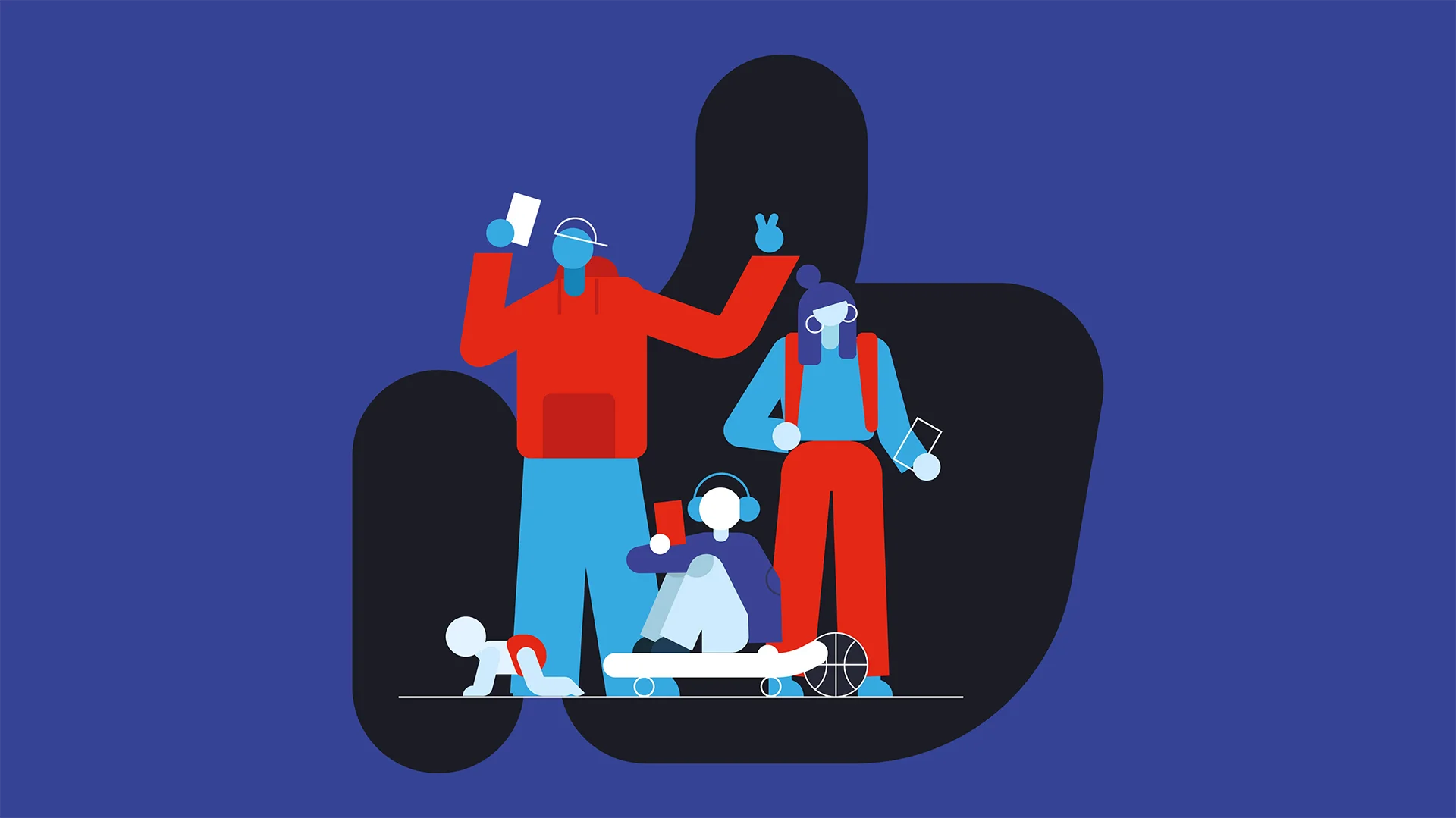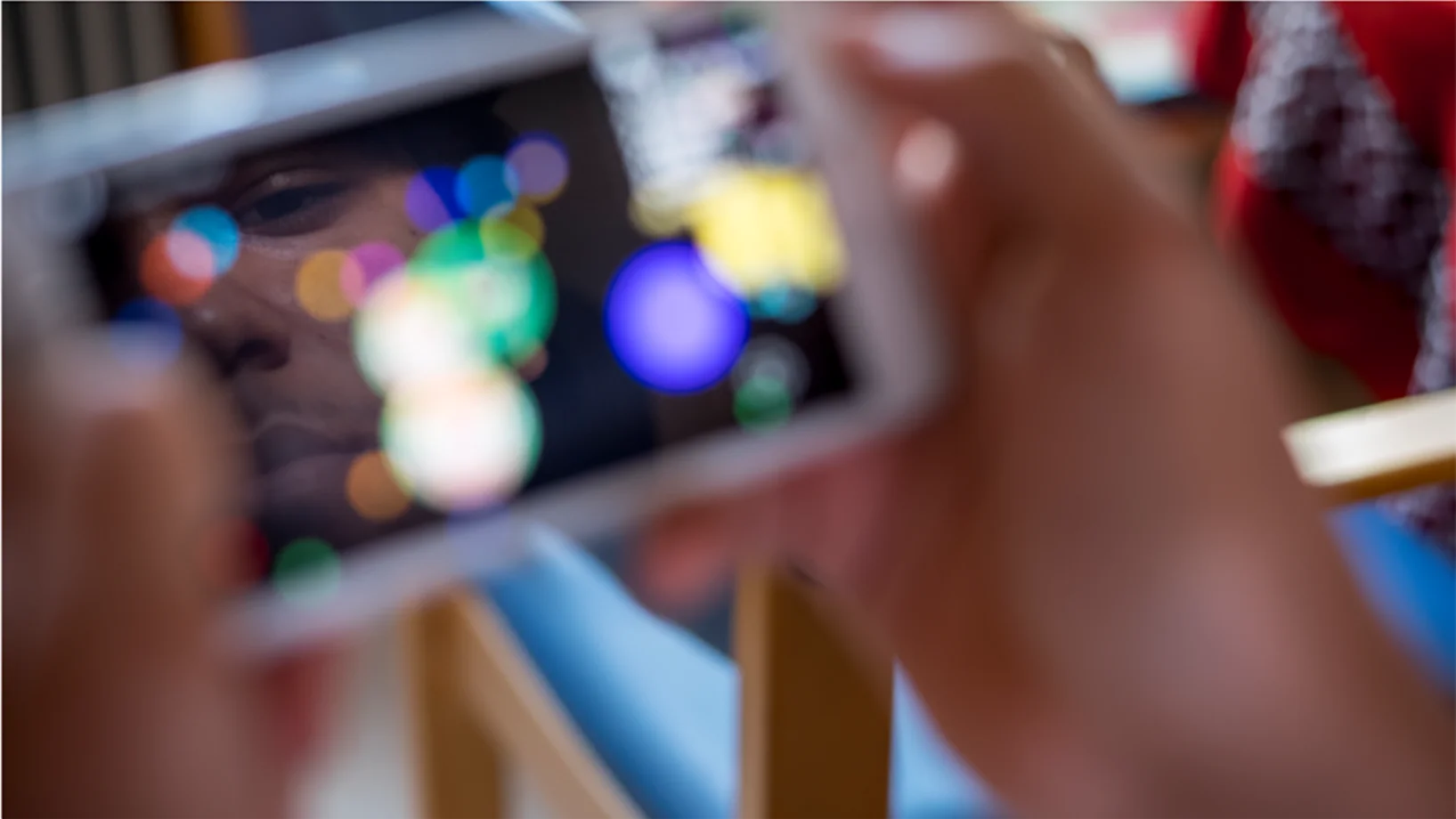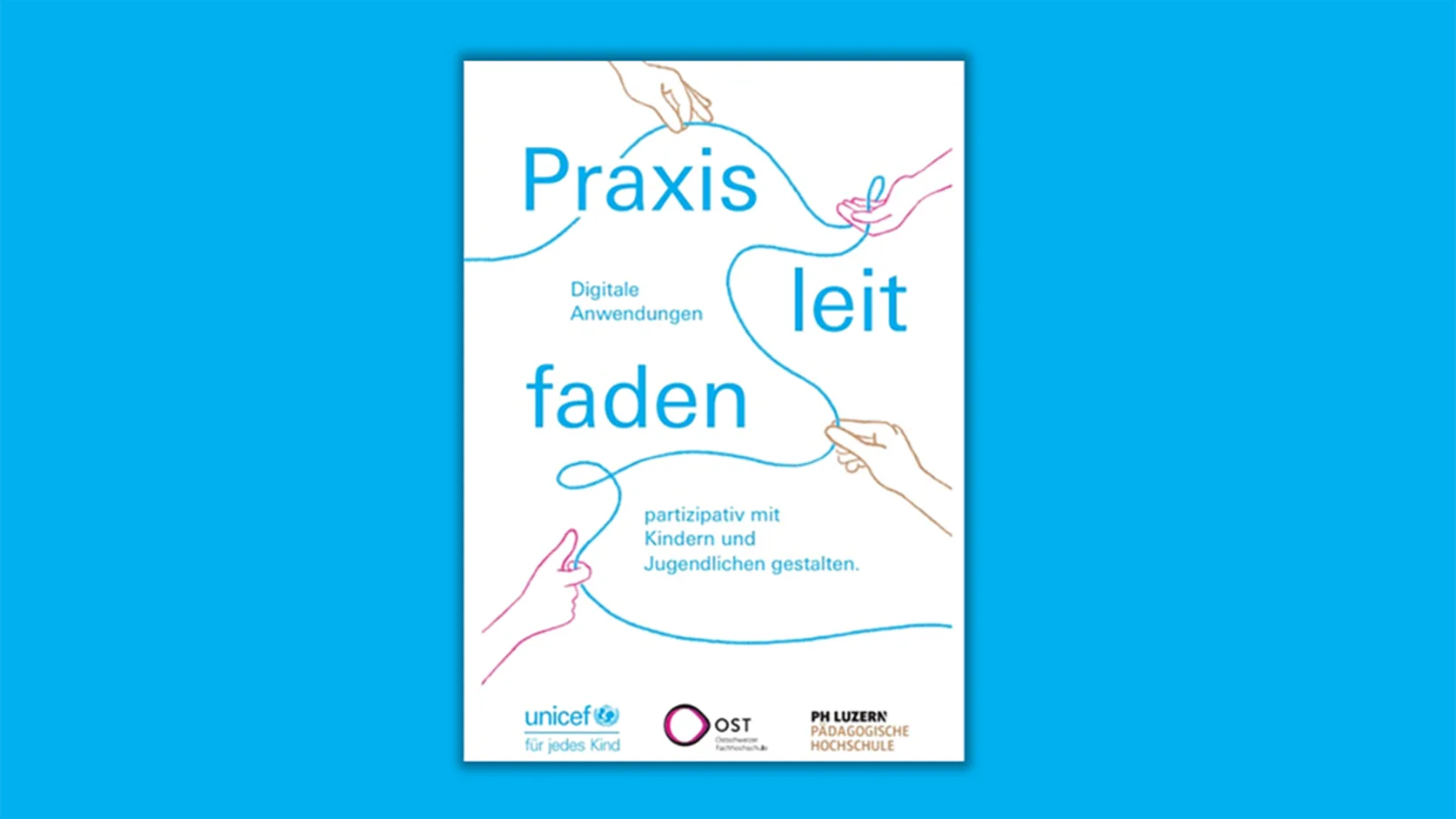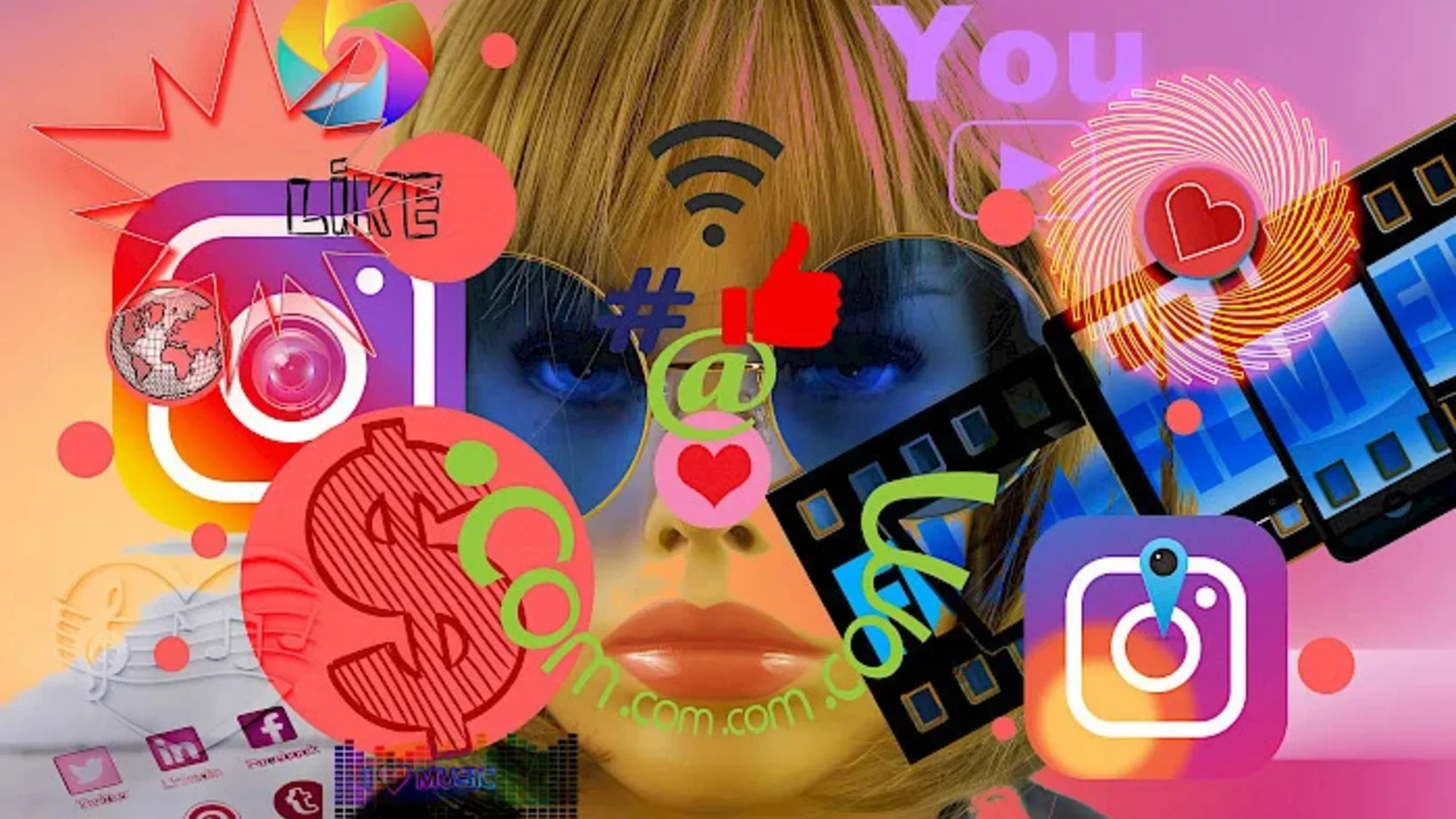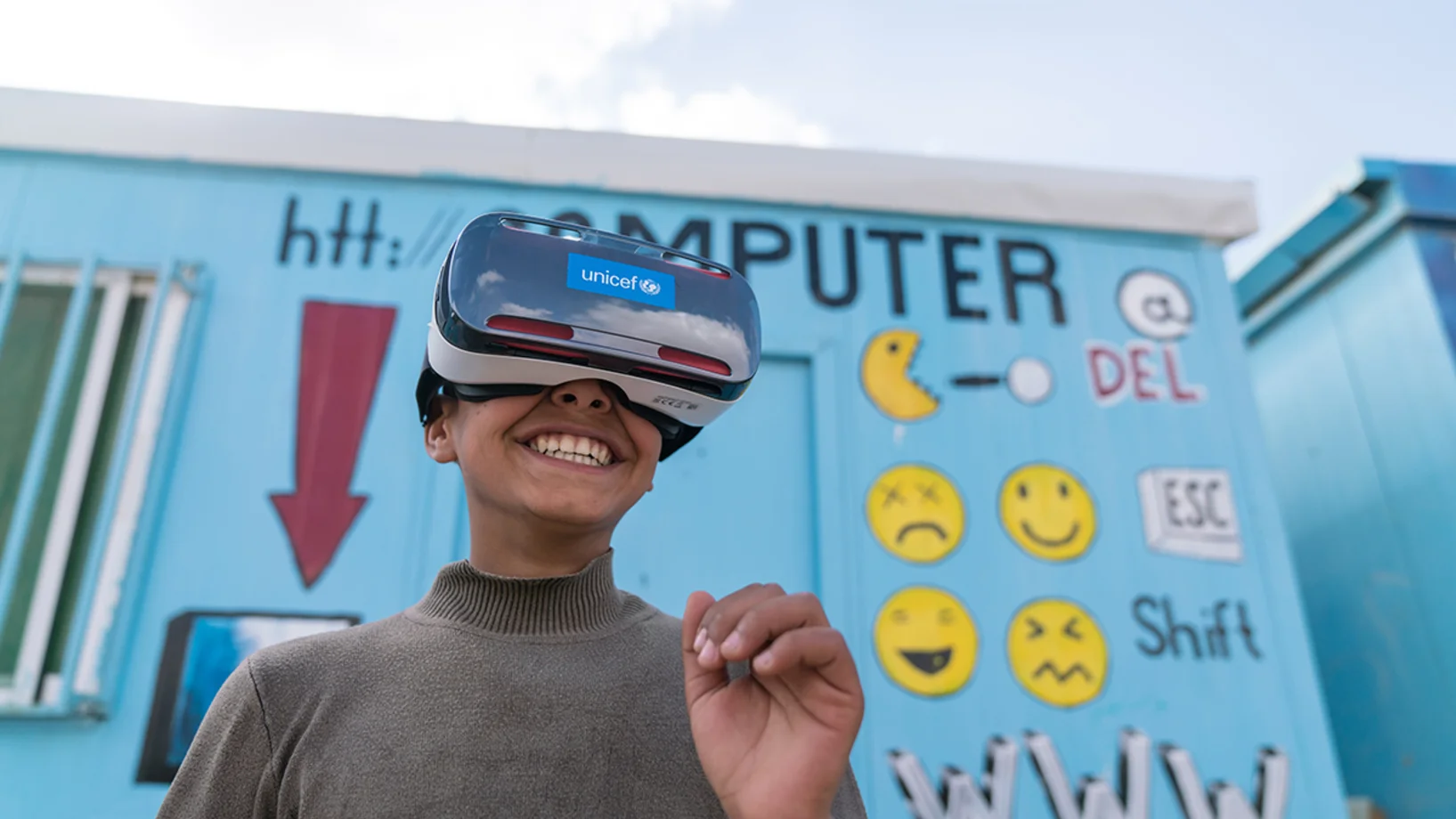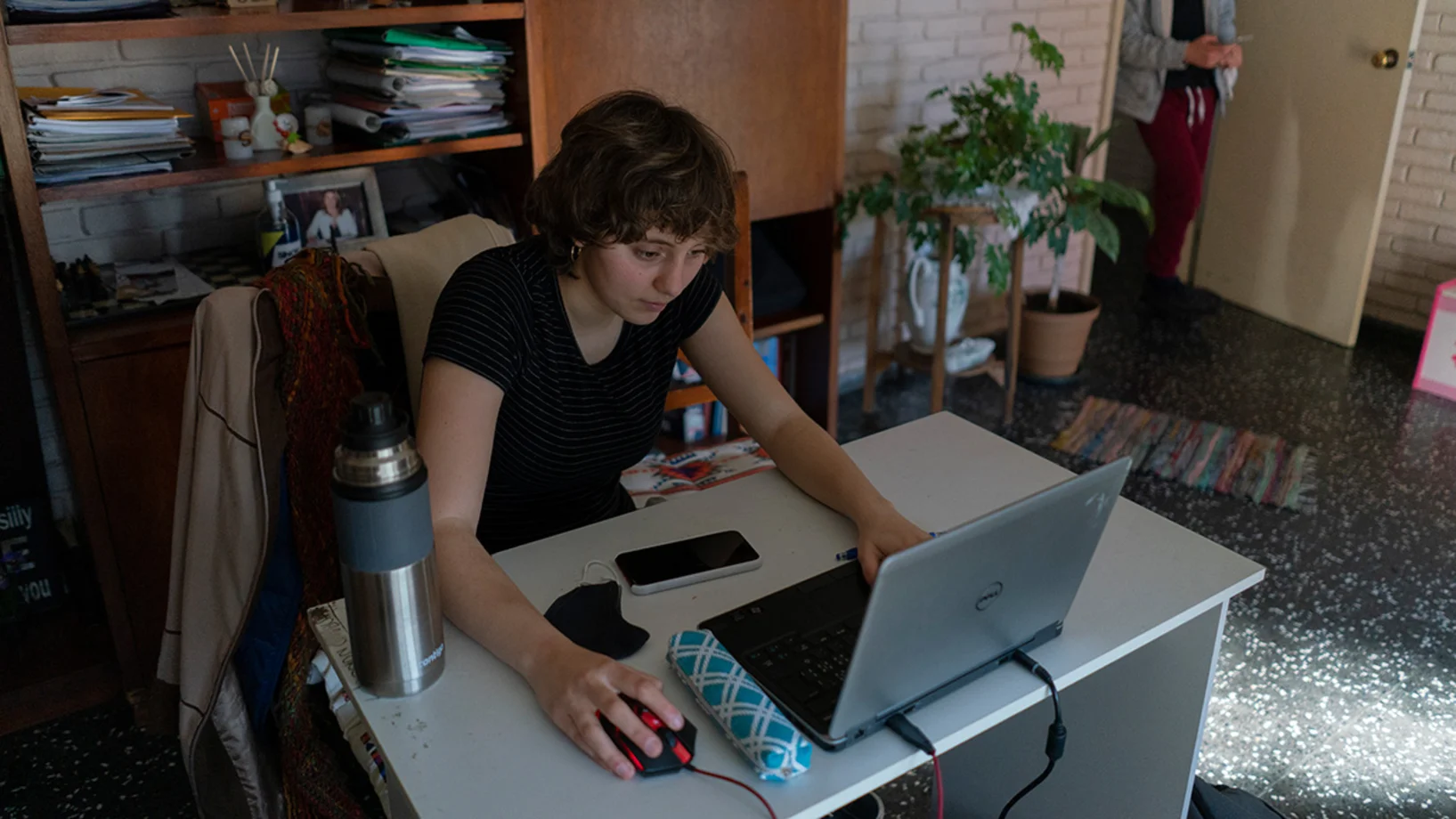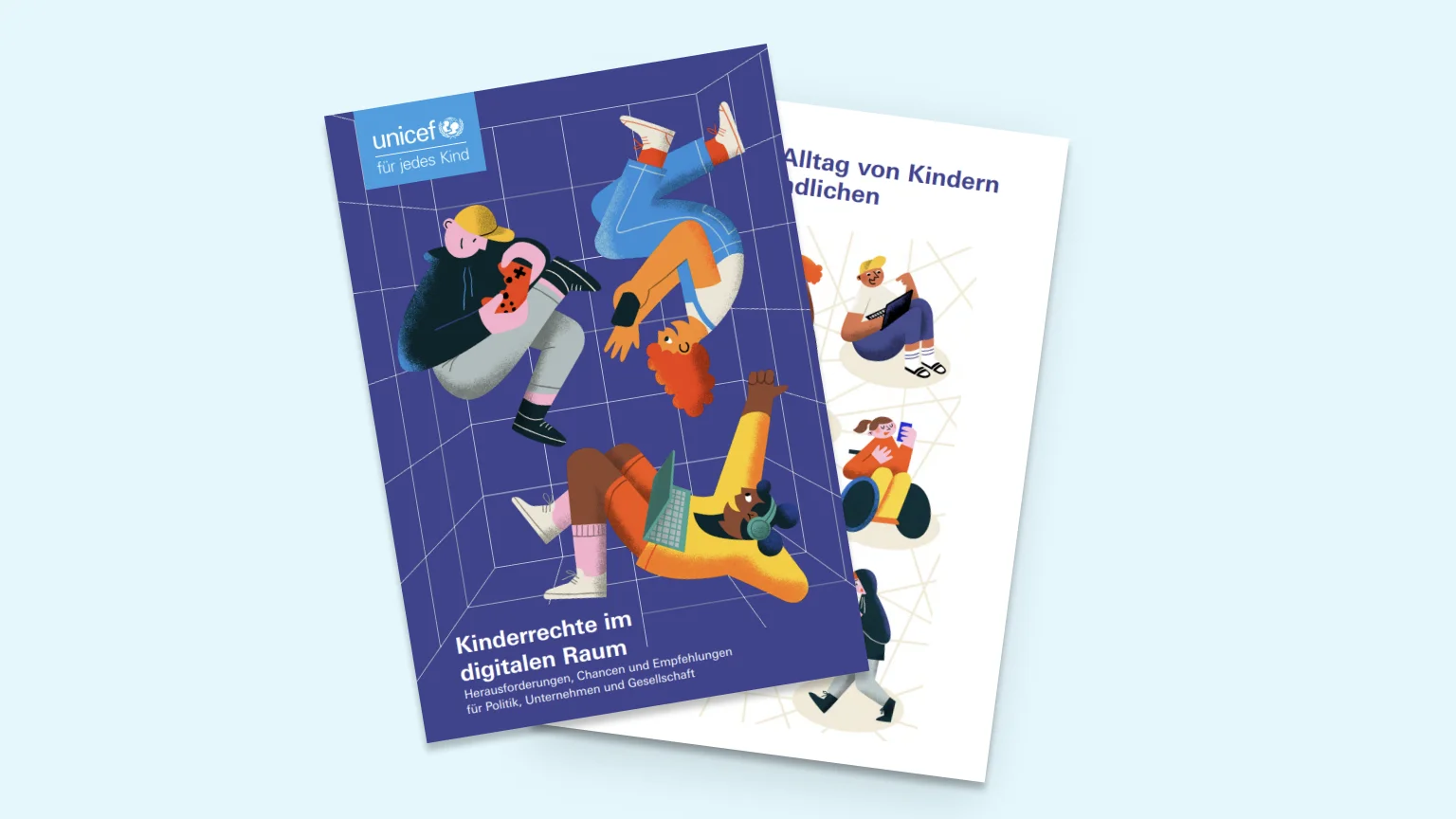Children and young people are especially affected by the advance of digitalization. UNICEF Switzerland and Liechtenstein works to ensure that children and young people are protected, promoted and involved in the digital sphere.
Considering children and young people online
Digitalization is everywhere and affects all areas of children’s and young people’s lives, such as education, leisure activities, information gathering and communication.
Although children and young people use digital applications on a daily basis, their views are not considered during the development phase. Most apps, social networks and other digital tools are designed by adults, for adults. The fact that young people are not considered or involved in this process gives rise not only to many risks, but also a host of wasted opportunities.
In 2021, the UN Committee on the Rights of the Child adopted General Comment No. 25 on children’s rights in relation to the digital environment. This is an official supplement to the Convention on the Rights of the Child and the first international legal document to explicitly recognize the application of children’s rights both offline and online.
Children and young people have never been as connected as they are today. Worldwide, 71 percent of 15- to 24-year-olds are already online. One in three internet users is under the age of 18. Children and young people are coming into contact with the digital world at an increasingly young age. This greater connectivity gives rise to many new opportunities, but also to risks.
Participation in the digital transformation is not guaranteed equally for millions of children worldwide. Young people who lack digital skills are at a disadvantage and have poorer prospects for the future. It is therefore especially important to give all children and young people equal access to the digital environment and promote their digital skills. It is essential that the potential risks associated with digitalization are taken seriously. In addition to issues related to child protection and data privacy, this also includes the mental health burden caused by various aspects.
You can find out more about the global situation of children and young people with regard to digitalization in the UNICEF report “Children in a Digital World”.
In 2021, the UN Committee on the Rights of the Child made the following recommendations in connection with digitalization as part of the States parties’ reporting procedure aimed at implementing children’s rights in Switzerland:
- Promote digital literacy among children, teachers, parents and caregivers.
- Provide special protection for children’s privacy in the digital sphere through regulations and measures.
- Ensure the protection and safety of children by developing standards.
- Ensure legislation respects children’s right to privacy and protects children from harmful content and risks.
- Implement mechanisms for filing complaints and prosecuting violations.
Artificial intelligence (AI) has many implications for children and young people. These include both opportunities and risks that the new technology brings with it. Children and young people must be considered in the development and regulation of AI so that children's rights are always respected.
UNICEF has drawn up 9 recommendations for companies and governments:
- Support children’s development and wellbeing
- Ensure inclusion of and for children
- Prioritize fairness and non-discrimination for children
- Protect children’s data and privacy
- Ensure safety for children
- Provide transparency, explainability and accountability for children
- Empower governments and businesses with knowledge of AI and children’s rights
- Prepare children for present and future developments in AI
- Create an enabling environment for child-centred AI
Read more about our recommendations here.
The digital sphere offers children and young people countless opportunities, but also harbors serious dangers. It is therefore particularly important to support and encourage children and young people as they explore the digital environment. This also includes making them aware of the risks involved.

“The digital sphere is an important living environment for children and young people. This means that they too must be considered and involved in it from the very beginning.”
Figures and data on the situation in Switzerland and Liechtenstein
In Switzerland and Liechtenstein, too, the digital sphere is an important living environment for children and young people. Various studies highlight the increasing relevance of this topic and the need for action.
As part of the States parties’ reporting procedure, UNICEF Switzerland and Liechtenstein conducted the survey “Children’s Rights from the Perspective of Children and Young People”. For the first time, young people between the ages of 9 and 17 were asked about the implementation of children’s rights in Switzerland and Liechtenstein.
With regard to digitalization, the following findings emerged:
- Nearly one in three children did not feel safe in the digital sphere.
- One in five children in Switzerland saw influencers as role models. In Liechtenstein, the figure was one in four.
- The privacy of one in ten children had been violated by photos and/or videos being shared without their consent.
The MIKE study conducted by the Zurich University of Applied Sciences (ZHAW) surveyed more than 100 children between the ages of 6 and 13. The younger children used their phones primarily for entertainment, in the form of music, games and online videos, while children aged 10 and older mostly communicated via social networks. More than half of the children in this age group had their own phone, rising to three-quarters among 12- to 13-year-olds.
The proportions using their phones at least once a week were as follows:
- 40 percent of 6- to 9-year-olds
- 68 percent of 10- to 11-year-olds
- 81 percent of 12- to 13-year-olds
Of the primary school students surveyed:
- 50 percent used WhatsApp
- 37 percent used TikTok
- 28 percent used Snapchat
- 17 percent used Instagram
The majority of children had positive experiences on the internet, but just under half of them reported that they had seen frightening content, while 40 percent had seen content unsuitable for children.
The JAMES study conducted by the Zurich University of Applied Sciences (ZHAW) surveyed 1,000 young people between the ages of 12 and 19. The study shows:
- AI tools are conquering the everyday lives of young people at record speed. Around 71% have already had experience with ChatGPT and co.
- The smartphone is an important everyday companion for young people. The most popular apps, the so-called Big Four, are Instagram, TikTok, Snapchat and WhatsApp.
- Almost a quarter of respondents have experienced being insulted or abused several times in the digital space. More than a tenth of young people have experienced being approached several times online with unwanted sexual intentions or someone wanting to talk to them about sex, with girls being more affected than boys.
UNICEF projects and publications
The digital sphere has long been an integral part of everyday life for children and young people. UNICEF Switzerland and Liechtenstein advocates for a fair and safe digital sphere, in order to engage with children and young people in the spaces where they live their lives and to promote inclusion. In doing so, we focus on getting young people themselves to participate.
Past events around digitalization
- Conference: “Children’s Rights in the Digital Sphere” September 13, 2022
- Live stream on the Youthfluencer study November 2, 2020
- Networking event: “Digital Child: Analog Municipality?” October 28, 2019
- Swiss Digital Days September 3, 2019
Your contact
UNICEF Children’s Rights Newsletter
Our Children’s Rights Newsletter keeps you up to date about our work in Switzerland and Liechtenstein and about other exciting events and projects.
